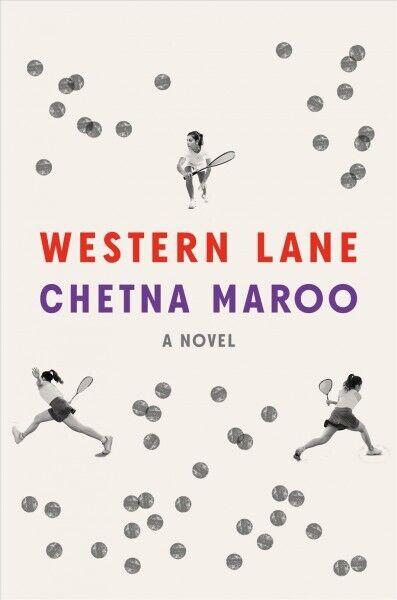
Western Lane
By Chetna Maroo
(Farrar, Straus & Giroux, 2023)
by James Zug
Chetna Maroo’s debut novel—short and tight, at 150-pages it is really a novella—is set in the 1980s in Luton, a town north of London, and revolves around a Gujarati Indian immigrant family. The mother has just died, and the father gives his three adolescent daughters squash as an outlet or escape for their grief.
The youngest of the daughters, Gopi, takes to the game and her outings at their slightly rundown local club, called Western Lane, turn into daily training sessions that last for three or four hours. The narrative clings to a cliched trope: an upcoming junior tournament where Gopi predictably triumphs.
Despite the formulaic story, the squash is strong. Maroo describes “the sound from the next court of a ball hit clean and hard. It is a quick, low pistol-shot of a sound, with a close echo. The echo, which is the ball striking the wall of the court, is louder than the shot itself.” She dilates on the dynamics of ghosting. Gopi becomes obsessed with the great male players of the 1970s and 80s, Geoff Hunt, Qamar Zaman, Gogi Alauddin and especially Jahangir Khan. She watches a three-hour video of Khan over and over again. “In the court, your mind is not only on the shot you’re about to play and the shot with which your opponent might reply, but on the shots that will follow, two, three, four moves ahead,” Maroo writes. “Though your mind is following several paths at once, it’s not a splitting but an expansion forwards and backwards in time, and it happens so quickly that it feels like instinct. Sometimes, you don’t even know you are thinking.”
Western Lane revolves around the issues of family in the aftermath of death—the isolation and awkward silences and the understated restructuring of routine and emotional valences. And it beautifully captures the dynamics of an Indian girl in a mostly white squash community. Ged, a sweet, white teenager with a stammer and a sometimes-playing partner for Gopi, is a counterpoint to her Indian family. Their budding relationship is stymied by Ged’s mother, not just because of racism per se but also because Gopi blasted a backhand drive into her father’s face and the mother fears for her son.
No book has perhaps ever had so many squash balls on its cover, which is perhaps a symbol of all the intersecting ideas bouncing around Western Lane.

